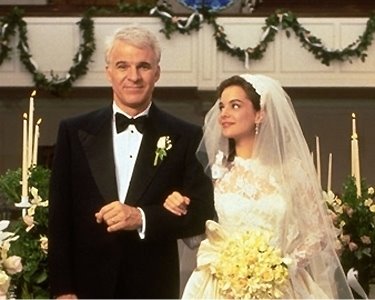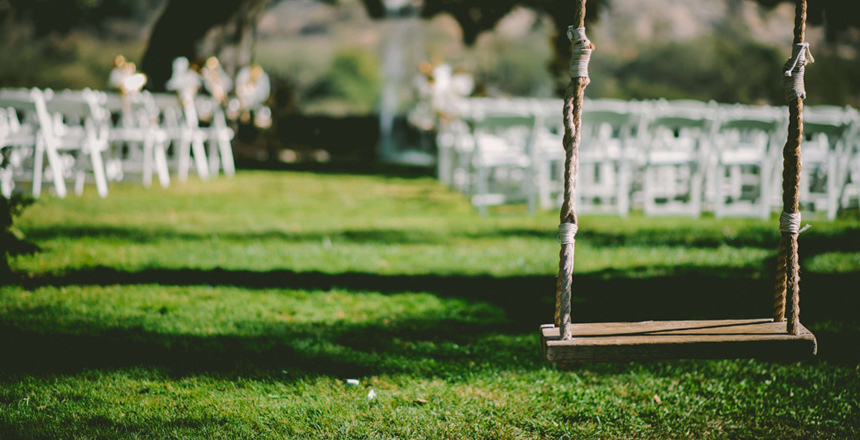Loss is a tough subject. And its aftermath brings with it endless uncomfortable scenarios that many people don’t want to touch with a 10-foot pole. Enter Meg, Modern Loss’ advice columnist. She may not be a therapist, but after hearing her responses to several reader questions, we knew we wanted her take on, well, most everything going on in our lives. She is the pithy, perceptive friend everyone needs and she, too, has been living with loss for years.
Send her your toughest questions at [email protected] (Subject: Ask ML). Your name will be kept anonymous. –ML

Wish you were here, Dad.
My father died recently. I am in my mid-20s, and a lot of my close friends are getting married. It is extremely painful for me to watch their fathers walking them down the aisle and doing the formal “daddy-daughter” dance. But I feel selfish excusing myself during these events. It’s not that I’m not happy for them; I’m just sad for myself. How can I be a good friend and gracious guest, but also honor my feelings and my loss?
I have never been less than 100% grateful that no one can read my mind and thereby know exactly what I am crying about at weddings. I am not alone in this, just as you are not alone in feeling particularly jabbed by these reminders of your loss.
Of course, being sad about your dad doesn’t mean that you aren’t happy for your friend. Let’s agree that overtly bad behavior is the worst thing you can do at a wedding. Therefore, if sitting through the dance is going to make you drink your face off or shamelessly throw yourself at the bride’s little brother, why don’t you opt to discretely excuse yourself. But … not at more than one or two weddings a year.
Related
I would love to give you a pass and say you never have to see this, but a pass for that is kind of a pass for the grieving process itself. I sometimes think that the best way to honor a parent is to lean in at these moments. For the majority of weddings, tough it out: Find a supportive friend to squeeze your hand and meditate on the fact that you had a great dad (which not everyone does) who would have been there for you. It won’t be easy, although sometimes will be easier than others.
Then, at some future wedding you will find yourself not staring into your wine during the father-daughter dance, and lift your head and see another stricken-looking daughter and you will guess what she is going through and you will be able to help her. An act I’m sure your father would approve of.
My lifelong friend died in a car accident earlier this year. We lived in the same city and were extremely close, but also had our arguments. Unfortunately, one of those happened right before his accident. I haven’t been able to come clean about how we left things to any of his family or our friends, and I’m hating myself for both keeping this a secret and for not having had the magical foresight to know that I wouldn’t get the chance to smooth things over. What should I do?
Irrational as it is, it is very hard to not let relationships be defined by how they were in their last few moments. I would think long and hard about why it is you feel the need to confess. It sounds as if you are looking for absolution (for both the argument and perhaps for being the one who’s still here). I am sure that over the course of 25 years you kept secrets for your friend, laughed at his bad jokes, fed his fish/walked his dog/let out his cat, told the truth/lied as needed and did all the other large and small things that we count on friends to do. Please consider the long arc of your friendship and try to forgive yourself. It’s impossible to never spend a minute mad at friends and equally impossible to know when we are going to lose them.
Keep in mind, you can still be a good friend even though your friend is gone. Visit his parents when you are in your hometown. Call his sister on his birthday. Keep the other people that were close to him close to you.
If you still feel the need to confess, I will say: Counting on the forgiveness of others is an unreliable business, particularly when it’s for something that isn’t your fault. Choose with whom you share your story carefully, as you don’t want to cause any additional pain to yourself (or anyone else).
Meg Tansey hails from New England, where talking about your feelings is frowned upon. She has lots of life experience but is not an actual therapist. Meg has a MFA from The New School and currently lives and writes in New York City. Send Meg your questions at [email protected] (subject: Ask ML).












